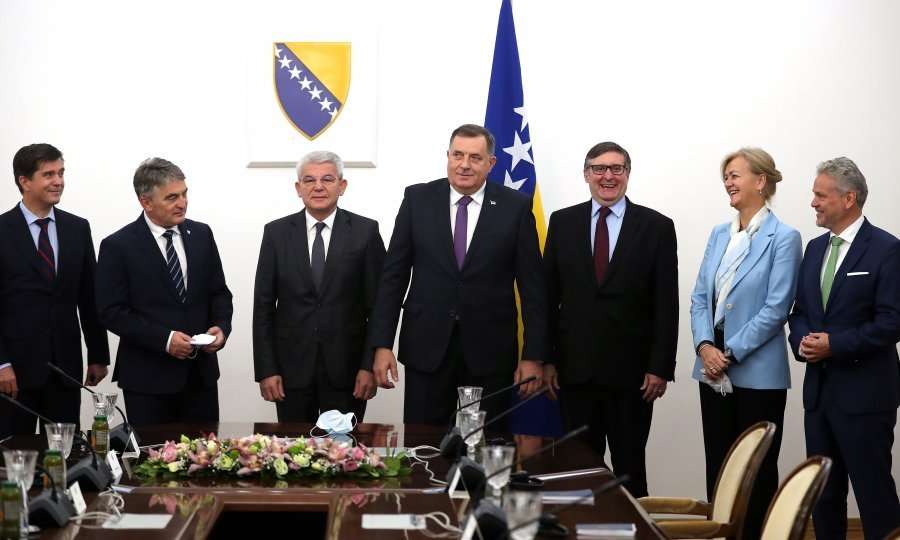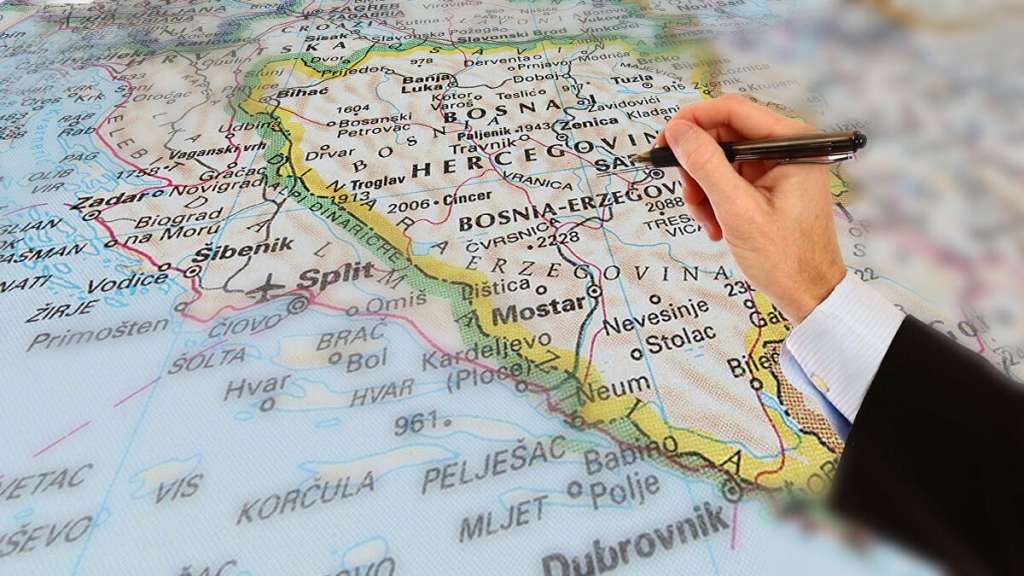You know how these things go. Just like in Hollywood melodramas. The main character is a child, and then he falls in love for the first time, and that is how he lives his life, for years, decades, and that love will never be returned, but it does not abate. This man deals with various things in life, and it carries him to all parts of the world, but he always compares every new love with the first. And then, when life slowly throws all its cards, and when some result is underlined with a pencil, love reappears. Like the spark of some eternity, like the touch of a person you longed for. Just as the story about Velež.
It is mostly learned from experience. From the age of five when they first took me to watch the game, I opted for the reds. The child then does not choose consciously all the way, but in Mostar are the mother’s parents, the sun and freedom. In Sarajevo is the school, obligations and a different pace of life. And winter. That distance, the fact that I don’t support any of the two “main” Sarajevo clubs, let alone those from the Big Four, gave me a different perspective: I was “on the sidelines”, and that is one of the conditions to try to look at things objectively. Well, since there is no objectivity, especially in football, then it was necessary to build a defence system that connects, seemingly, that which is incompatible. On the one hand, the desire for success and victories, and, on the other hand, to bear the difficulties that were a little bit harder for Velež than other clubs.
In a world where there is too much religion, one had to preserve one’s private belief.
It was not easy. Being a regional, primarily Herzegovinian club, Velež did not have the power to deal with the “big ones” in Yugoslavia. At the scoreboards in Belgrade and Zagreb, there seemed to be no place for the somewhat “strange” surnames of the players, and the weaker, but media-acclaimed players of Zvezda, Hajduk or Partizan usually played for the Yugoslav national team. The weak consolation that the Mostar Reds most often play the most beautiful football left a stain on the soul that winning the two Yugoslav Cups did not bring to an end.
All true loves are unhappy. It remained a pity that more could and should have been done.
In the disintegration of Yugoslavia, both Velež and Mostar were destined to simply disappear. What hurt the most was that some former “Velež” players also took part in it. It is not uncommon in this area for former communists to turn into fascists, but the way in which Velež was expelled from the stadium under Bijeli brijeg, and a whole policy aimed at destroying the club, often left many speechless.
It was necessary to withdraw from the already difficult position, and wait for your chance.
And dark things happen illegally. In the middle of the first decade of this century, Velež remained stuck between being left to die slowly, and the greed of local attempts by mafia bosses to completely dismantle the remnants of family treasure and a big name. It was a difficult, painful time, a disbelief that something that had survived the war catastrophe would just melt away in a depressing postwar period. The first league of the Federation, periods of twenty games without a win, fear, poverty and muddy roads to rural playgrounds. Torment and misery. The star had sunk into the mud, and nothing seemed to be able to pull it out.
And then, after almost a decade of suffering, it shined again. Someone should have taken responsibility, and that someone in this case is Šemsudin Hasić, the president of the club. A former pilot and warrior, someone who knows the cost of flying and the danger of falling. Slowly, piece by piece of freedom was won, the stadium in Vrapčići got a new look, they started to win and return with their heads held high: from Bihać, Nova Bila, Gračanica, all those places you have to go through to get to Europe.
And, here it is. We are waiting for the end of the third, and we are on the threshold of the fourth round of the European Conference League qualifiers, from which we are separated by only one more positive result: a rematch against Swedish Elfsborg, after a draw in the first game.
Fan suffering is for normal people nothing but nonsense. By Thursday, for the most part, there is no restful sleep. Just so Velež doesn’t give up. The position of the social chronicler, on the other hand, dictates that one thinks about things rationally: is “Velež” such a model as it is that one can still work and think European. Is this renaissance falling on the club’s centenary, in fact, a sign that we need to get up and live normally, be part of a context in which it is natural that next to names like PAOK, Plzen, Partizan or Feyenoord, there is the name of Velež. As, after all, it used to be. Why don’t we always have the role that belongs to instead of waiting for it to be given to us? Velež is Europe, it was against Rapid, Derby County and Borussia Dortmund, which are just some of the greats they have played with in the past.
Today, it is just as difficult to get on the football map of the world as it was during the Cold War. Maybe even harder, because everyone wants to go there. And if, by the nature of things, that place belongs to someone – it is Velež. True, life often does not fulfil desires, and things do not play out according to desires for heavenly justice, but according to the situation on the ground.
That is why, for the red star of Velež, one should not ask for a crumb more than what belongs to it by human rights.
he right to exist and a place under the sun. Just like for the citizens of this country. It is no coincidence that her fate and the fate of the club in question coincide to some extent. In this case, football mimic life, and hopefully the time in which it was the other way around has passed irrevocably.
Like any real, old fan grump, I am slightly annoyed that everyone is cheering for Velež, and that social networks are full of various outbursts of emotions, which are sometimes tasteless. But it is nice to see how this symbol unites an entire space: congratulations are coming from Croatia, and the Slovenian sports channel from all the offered matches has broadcast AEK – Velež from Athens, and there is a positive atmosphere that has not existed for a long time.
Like it or not, this country cannot exist without the idea from which “Velež” originated. The results of the matches are a less important thing in that sense. But that logic is not for the fans. So, should those who have crept into the ceremonial lodge overnight. But that’s how the world works. Where good things happen, there are always a lot of unnecessary people.
The only thing that matters is that it still exists and that it is still here despite attempts to cut off its wings for hundreds of years. And it failed. Let’s hope they learned something from that.
Because first love is impossible to kill.




